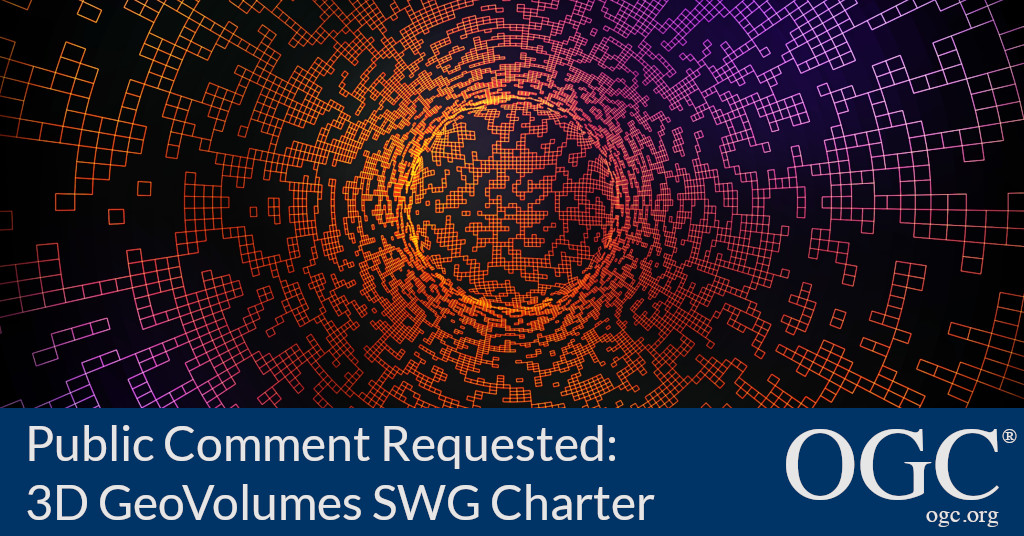New SWG will develop OGC API – 3D GeoVolumes, which will integrate various current approaches to accessing 3D geospatial content over the web into a single solution.

The Open Geospatial Consortium (OGC) seeks public comment on the draft charter of the new 3D GeoVolumes Standards Working Group (SWG), which will develop and maintain an OGC API – 3D GeoVolumes core Standard and extensions. Comments are due by May 5, 2021.
In recent years several solutions and standards have emerged to access and transfer 3D geospatial content over the internet (e.g., 3D Tiles, I3S, OGC 3D Portrayal Service, glTF, CDB, CityGML). These solutions were developed for various technical and commercial reasons. They use different distribution mechanisms and are optimized for user requirements and bandwidth situations. As each of these co-existing solutions binds the user to an approach, it is challenging to access a variety of 3D content from different providers.
3D GeoVolumes seeks to address this challenge by providing a resource model and corresponding API to integrate various approaches into a single, open standards-based solution. The proposed API and resource model will allow efficient discovery and access of 3D content in multiple formats based on a familiar space-centric perspective.
The goal of the Standard is not to replace existing distribution methods and models for 3D content, but to enable interoperability between them. For providers of 3D content, the Standard will provide simple methods to publish and offer that content as resources for use by other systems. For software developers, the Standard will provide common methods to describe and leverage existing 3D content using modern APIs – saving development and deployment time and costs. For users, applications, and enterprises, the ability to discover and access 3D content across a common API, regardless of the underlying distribution mechanism, represents a significant step forward in geospatial interoperability.
The draft 3D GeoVolumes SWG Charter is available for review and comment on the OGC Portal. Comments are due by May 5, 2021, and should be submitted via the method outlined on the 3D GeoVolumes SWG Draft Charter's public comment request page.
About OGC
The Open Geospatial Consortium (OGC) is an international consortium of more than 500 businesses, government agencies, research organizations, and universities driven to make geospatial (location) information and services FAIR – Findable, Accessible, Interoperable, and Reusable.
OGC's member-driven consensus process creates royalty free, publicly available geospatial standards. Existing at the cutting edge, OGC actively analyzes and anticipates emerging tech trends, and runs an agile, collaborative Research and Development (R&D) lab that builds and tests innovative prototype solutions to members' use cases.
OGC members together form a global forum of experts and communities that use location to connect people with technology and improve decision-making at all levels. OGC is committed to creating a sustainable future for us, our children, and future generations.
Visit ogc.org for more info on our work.
“
